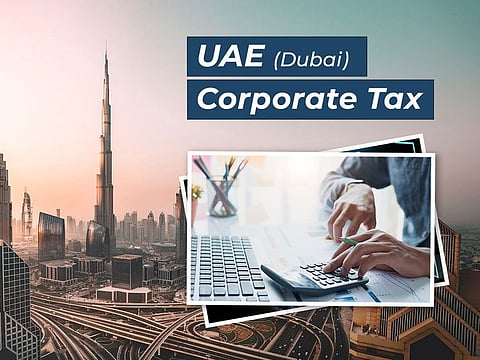UAE Corporate Tax: New businesses could consider separate licences for free zone, mainland operations
Decision on separate licences hinges on how UAE authorities define 'qualifying income'

Dubai: New businesses entering the UAE should consider taking separate licences if they plan to have both mainland and free zone operations. Such a dual licencing scheme could be the best way to deal with their upcoming corporate tax obligations.
Because under the CT rules, while free zone based businesses typically would attract a 0 per cent tax, those with extensive income generation from any mainland operations would be subject to the full 9 per cent.
This is why new businesses could consider taking out dual licences for free zone and mainland focussed operations, and thus try and keep the degrees of separation, consultants say. “This is quite likely,” said Atik Munshi, Managing Partner at the consultancy Finexpertiza UAE.
“There are scores of export-oriented companies who have set up base in UAE free zones, and the zero rate of tax is very attractive to such entities.
“Even on the UAE mainland, there are companies that have a good amount of export revenue as the UAE traditionally is a trans-shipment hub.
In such instances, mainland companies may consider setting up a free zone entity for their export services to take advantage of the zero rate.”
Debate over free zone licences
Questions over free zone licences and corporate tax obligations have been part of heated debates since the UAE announced it was introducing the tax from June 1, 2023. The authorities also issued a confirmation that pure-play free zone based businesses will not be taxed. That would mean, for example, a company exclusively into exports/re-exports out of its free zone gets a 0 per cent rate.
But any direct or indirect operations on the mainland provides a different picture. “The ones that have substantial business with the mainland will need to realign,” said Munshi. “We find most MNCs operate through a corporate web of ownership and control.
“They would have warehousing or logistic centers in free zones and retail outlets on the mainland. There is an extensive interconnect between those entities. Sometimes, both warehousing and retail might appear to be separate profit centers and act competitively - but they are interconnected anyhow through the corporate web.”
Establish a holding company?
Another option for businesses with revenues would be to set up a ‘holding company’ structure in a free zone to get the benefit of tax-free dividend and interest. But make sure to have significant shareholding in such a structure and back it with ample cash reserves.
Separate licences
Unless the UAE Cabinet decisions don’t permit a FZ entity to have mainland-sourced income, the business can explore the possibility of having a separate mainland licence and offer to tax the mainland-sourced income. In such cases, the free zone entity should ensure that separate set of books are maintained and the transactions inter se between the mainland and free zones divisions are at arms-length and subject to transfer pricing regulations - Nimish Goel of WTS Dhruva Consultants
Sign up for the Daily Briefing
Get the latest news and updates straight to your inbox



